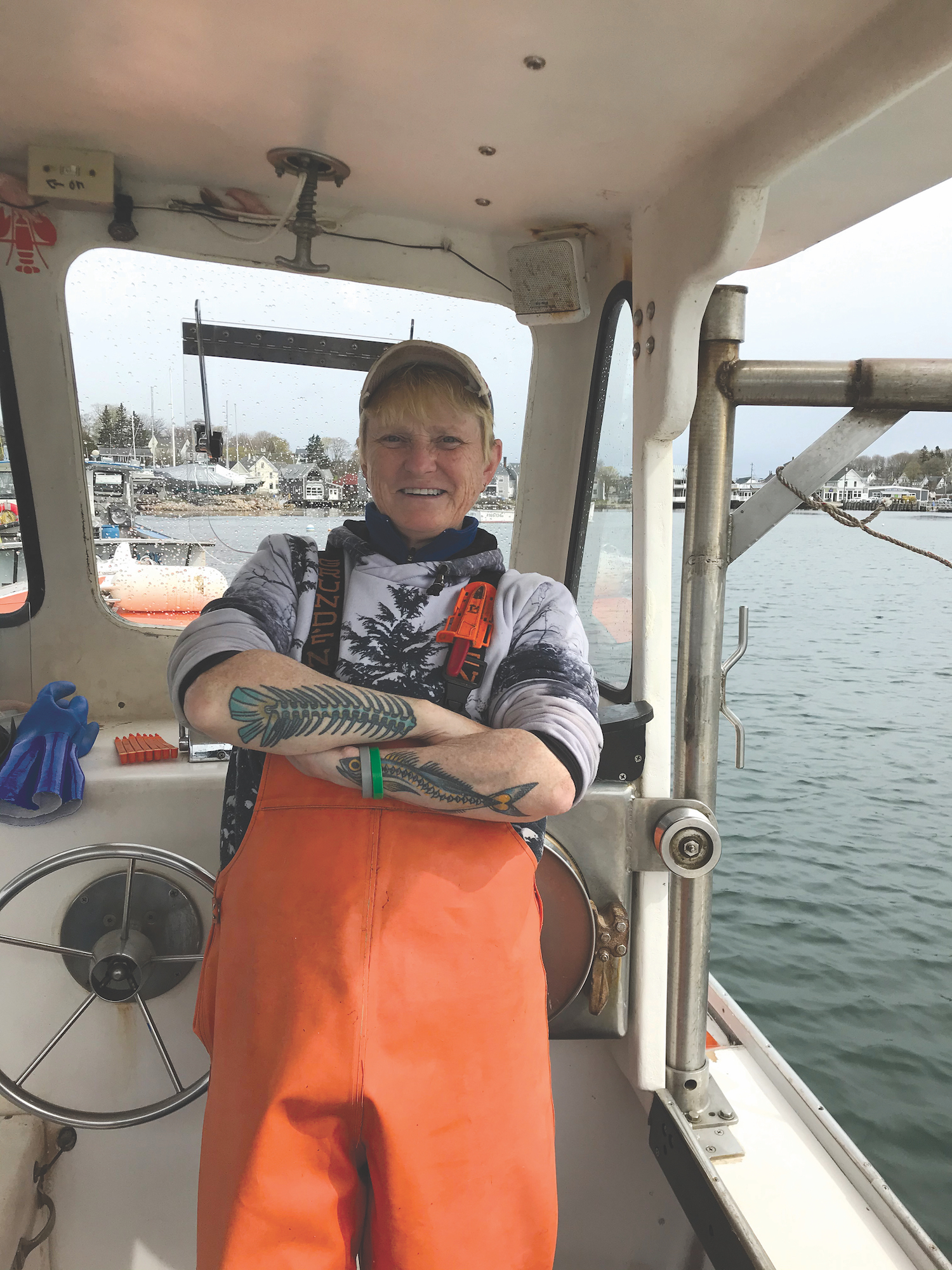Yvonne Rosen, of Vinalhaven, Maine, likes to joke that she “accidentally fell in love with lobstering.”
Even though Rosen was born and raised on Vinalhaven, an island 15 miles off midcoast, with a year-round population of about 1,200, and went lobstering with her grandfather as a kid, it wasn’t always something she envisioned as a career.
“I went to college, moved away for a while, then I moved back after a messy break-up to figure out what my next move in life was going to be.” In college, she faced and beat ovarian cancer. Back in Maine, Rosen worked on a friend’s boat. She then worked on a bunch of other boats before getting her apprenticeship, and eventually, her own boat.
Today, Rosen is in her 12th season and on her fourth boat. She hauls 800 traps, the regulatory max.
Conversations about being a woman in an industry dominated by men tend to come up. But it is difficult to quantify how many are involved in Maine’s fishery. There are statistics on the number of women who hold licenses in Maine, but they do not account for women working as crew, or all the latent licenses that are held by men. But, for Rosen, it’s simple.
“It’s the same work whether you are male or female,” she says. “I know a lot of people think that women doing this is a big deal, doing a ‘man’s job.’ But to me, 15 years later, it’s still just my job — and the fact that I’m a woman has never had an impact on how I do it. I work hard just like any other lobsterman.”
Rosen, 54, says that someday, she may shift to smaller traps, but for now, she hauls Portland traps. “Physically, I can feel a few more pains every year I do this, but I just tough it out. By midseason when we are hauling every day, and I’m back in good shape. I hardly notice it.”
Rosen’s “stern girl,” Ruby Hopkins, has been working with her for five years now. “I am thankful for Ruby,” she says, “I couldn’t do it without her help.” Rosen’s boat, Gimmie A Hulla is a 30-foot H&H with a 380 Cummins engine. It’s named after another strong woman in her life: her 95-year-old grandmother, Priscilla Rosen, whose nickname is Hulla.
Rosen knows it can be difficult for people outside the industry to understand all that goes into being a commercial lobsterman.
“The expense of owning a boat, building up your gear, rope, buoys, everything it takes to maintain gear, license, insurance etc.,” says Rosen. “Then everything is dependent on lobsters — and the price we get for them — which is not a sure bet either.” Her outlook turns philosophical at times. “Every trap is a mystery waiting to be hauled up by me,” she says.
With commercial fishing, Rosen says there is always something to consider. “Climate change is for sure going to have an impact. Lobster don’t like their water too warm.” Regulations around the protection of right whales also impacts her work. “All we want to do is go to work, but the government makes it harder and harder for us to be able to do that.” Most recently, the covid-19 pandemic has caused her to worry. “If we can’t get any foreign markets to buy our product when we start catching volume,” she says, “I’m not sure what is going to happen.”
Overall, Rosen finds meaning and purpose working on the water. “I’ve had a lot of great days out there. The best is when it’s a calm summer day and we are catching a ton of bugs. We might see a big sunfish and go see it up close. It’s work, but I really do love what I do, and I don’t dread going every day.” When pressed, she jokes she would be a carpenter, or maybe a rock star, if not fishing.
If someone had to play her in a film about her life, she would want it to be Kristen Stewart — who she says is “not a lookalike, but I just love her.”
But when it comes down to it, she says, “I can’t imagine doing anything else with my life at this point, nor would I want to. This industry is very uncertain, but people love to eat lobster and I’m sure we will still be able to catch them for many years. But it is uncertain and there are a lot of things against us — but we are resilient and determined and this is our way of life.”







